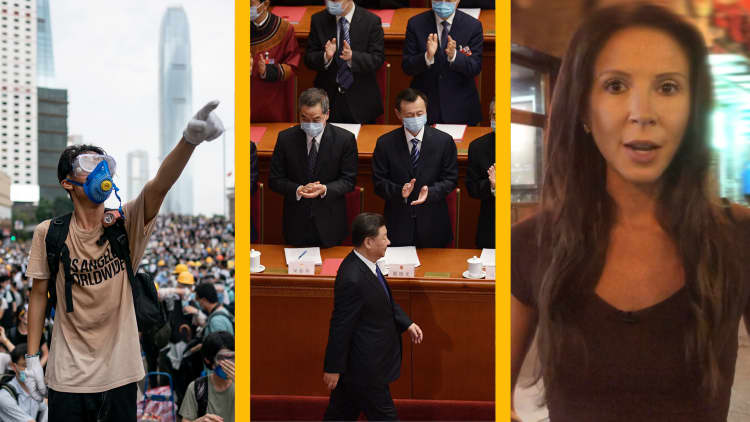BEIJING — As geopolitical tensions rise over the central government's growing grip on Hong Kong, a Chinese official portrayed international criticism as irrational.
"Some countries are threatening us with sanctions. I would say this is the logic of bandits," said Zhang Xiaoming, executive deputy director of the Hong Kong and Macao Affairs Office of the State Council, China's top executive body. He was speaking through an official English translation of his Mandarin-language remarks at a press conference on Wednesday.
Late Tuesday, the Communist Party-controlled Chinese government revealed details on a controversial new Hong Kong national security law, which also took effect that night. While Beijing sees the legislation as a measure to protect China's security, critics say the law undermines the democratic freedoms in the semi-autonomous region that have made it attractive for foreign business.

In the days before the law was passed, U.S. President Donald Trump's administration pressured Beijing with announcements of visa restrictions on Chinese officials for "undermining Hong Kong's high degree of autonomy" and restricting defense exports and access to high-technology products. The EU has also criticized China, the bloc's top source for imports, over the national security law.
"What we have formulated is a law for national security in an administrative region of China," Zhang said, emphasizing that the law is part of the country's internal affairs. "Long gone are the days when we China had to takes cues from others."
Hong Kong is a special administrative region of China governed under the "one country, two systems" principle which grants the city freedoms that other Chinese cities do not have. Under that system, the city's legal and economic systems are largely separate from those of the mainland.
The U.S. has not yet named the targeted officials. China responded by announcing vague restrictions of its own on "U.S. individuals with egregious conducts on Hong Kong-related issues."
Zhang said the new law would not negatively affect Hong Kong's economic and financial development. He pointed to initial capital outflows and departures from the region when the city was handed over from the U.K. to Beijing more than two decades ago. Zhang argued that time would again show the value of the law.
"This law will be a turning point and put Hong Kong back on its path of development," he said.


